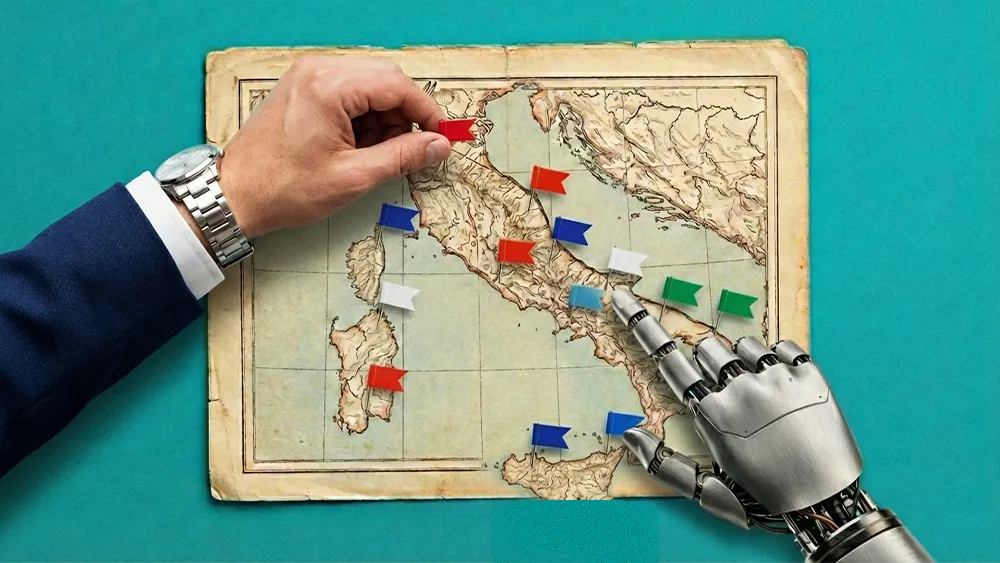
All articles
How the First Australian-Made LLM is Transcending Legacy Sovereignty and Forging its Own Path to Global Relevance
Maincode CEO Dave Lemphers shifts national AI from defensive "sovereign" concepts to collaborative "Australian-Made AI," driving tangible solutions & global partnership.

Key Points
A first-of-its-kind "Australian-Made AI" framework is shifting the nation's focus away from sovereignty and toward strategic global partnerships.
Dave Lemphers, Co-Founder and CEO at Maincode, explains why other countries must also build their own foundational AI capabilities to participate confidently in the world economy.
By leveraging private investment, a "builder" mindset, and local ingenuity, the framework is the first of its kind to enable of high-quality, trustworthy AI products for the global market.
The power of 'Australian-Made AI' is that you're no longer focusing inward. You're saying to the world that we want to participate as partners in a global economy, and that is so much more powerful and inclusive.

National AI strategy is often framed in defensive terms, but an alternative framework shifts the focus from control to creation. Moving beyond the abstract concept of sovereign AI, one company's Australian-Made AI offers a more tangible, values-driven model that emphasizes local development and ethical considerations. This strategy empowers countries to own their AI strategy and participate in the global economy as confident and collaborative partners.
Leading the way is Dave Lemphers, Co-founder and CEO of Maincode, the company behind Australia's first native-made language model. Before his current role, Lemphers served as CTO at Techstars and Easygo, and as a principal engineer at industry giants such as Microsoft and AWS. Today, he channels his expertise into building a national, "Australian-Made" AI capability from the ground up.
"The power of 'Australian-Made AI' is that you're no longer focusing inward," Lemphers says. "You're saying to the world that we want to participate as partners in a global economy, and that is so much more powerful and inclusive." In alignment with the Australian Government's "Future Made in Australia" initiative to secure the country's place in a changing global economy, his "Australian-Made AI" framework intentionally leverages the established brand values of quality and ingenuity associated with Australian products.
- Be the builder: In contrast, most discussions around “sovereign AI” often lack clear, actionable definitions, Lemphers explains. The term has been applied so broadly at times that it frequently leads to confusion rather than concrete progress. "Sovereign AI seems to be a creature born in political circles, among people who aren't actually building real AI. The risk of aligning with that concept is that you align with non-pragmatists and talkers. But in Australia, we're builders and doers."
For him, AI is as foundational a technology as electricity. But it's also one that requires mastery at a national level. "Should any country know how to build AI? Absolutely. The moment a country decides to simply rent or lease this AI capability, it puts itself in a risky position. If you suddenly need to accelerate and wield that power, you won't actually know how."
In some ways, however, Australia's sustained prosperity presents a unique cultural dynamic for innovation. According to Lemphers, a sense of comfort can limit focus on maintaining existing successes rather than aggressively pursuing new, foundational capabilities.
- Complacency costs: The result is a preference for careful consideration over rapid, decisive action, Lemphers notes. "Prosperity has kept everyone comfortable, so they haven't had to put their brains into gear, and it's created a laziness at the very highest levels of leadership."
- Talk is cheap: To emphasize his commitment to tangible action, Lemphers explains how Maincode is backing its vision for national AI capability with significant private investment. "We just invested $30 million of our own private funding into our second factory, with no government support. You can either lament the situation, or you can roll your sleeves up and get something done."
That "roll your sleeves up" attitude is what helped Lemphers' team solve a key challenge for healthcare operators, building custom, purpose-trained AI models from scratch to provide reliable answers for patients. It's work like this under the 'Australian-Made AI' framework he champions that shows a path forward for national AI strategy. By focusing on ingenuity, creating high-quality, trustworthy products, and engaging as a confident, collaborative partner in the global economy, the future of AI isn't about building walls, but about building products the world wants to buy.





